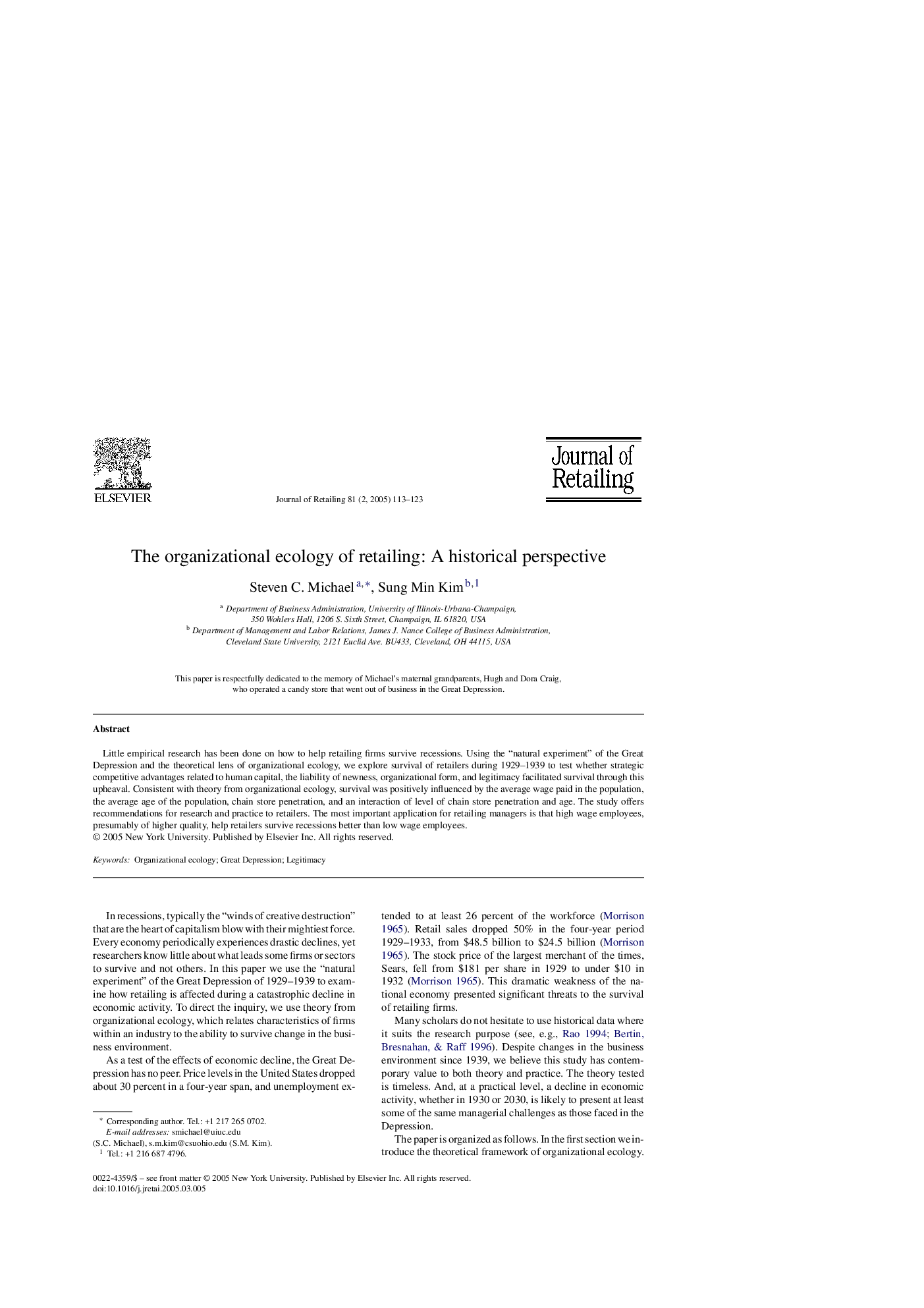| Article ID | Journal | Published Year | Pages | File Type |
|---|---|---|---|---|
| 10439006 | Journal of Retailing | 2005 | 11 Pages |
Abstract
Little empirical research has been done on how to help retailing firms survive recessions. Using the “natural experiment” of the Great Depression and the theoretical lens of organizational ecology, we explore survival of retailers during 1929-1939 to test whether strategic competitive advantages related to human capital, the liability of newness, organizational form, and legitimacy facilitated survival through this upheaval. Consistent with theory from organizational ecology, survival was positively influenced by the average wage paid in the population, the average age of the population, chain store penetration, and an interaction of level of chain store penetration and age. The study offers recommendations for research and practice to retailers. The most important application for retailing managers is that high wage employees, presumably of higher quality, help retailers survive recessions better than low wage employees.
Related Topics
Social Sciences and Humanities
Business, Management and Accounting
Marketing
Authors
Steven C. Michael, Sung Min Kim,
